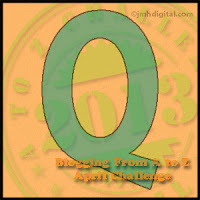What’s for Dinner?
Mom’s acting weird. Well, that’s kind of normal, if you follow me, because she’s always weird, but usually she’s weird like wearing strange clothes and working all night on one of those bizarre sculptures she makes. I won’t ever tell her this, but I don’t like them. They have too many jagged edges. They’ll tear holes in you if you get too close. I sometimes wonder if she’s out to destroy someone, or if she just sees the world that way, all jagged. Either way: weird.
But what’s really weird is that she’s started cooking. No more Swanson’s pot pies, and no more trips through the fast food drive-through window. So now, I have to eat what she calls “real food,” which is sometimes pretty unreal, if you follow me.
The thing is, her idea of real food can get pretty disturbing. And that’s why I am sitting at the kitchen table doing my homework, instead of in my room with my music. I’m keeping an eye on the cooking, between algebra problems. I’m watching for that moment that says she’s gone over the edge, so I can try to save the rest of us.
She’s put on a big pot of water to boil. That seems pretty safe, so I turn back to my math book. 6x + 7y=23. If y=2, what is x? Okay, algebra’s weird, too. What do I care what X equals? I can see at a glance that it’s not going to be a nice round number. I don’t like decimals. They’re messy. And I need some kind of motivation for X, if I’m going to care why it’s multiplying six.
Pasta. She’s gotten out the spaghetti, which is good, and matches the pot of water. But a lot depends on what she wants to put atop it. My palms start to sweat as she begins pulling things off of shelves and muttering. She’s got an awful pile of weird stuff: ginger and allspice and beans, and for some reason a bottle of pickled pigs feet. And is that an incantation she’s muttering? We have never in our lives eaten pickled pigs feet, and I do not intend to begin now. I forget all about algebra and concentrate on willing the bottle to disappear.
She puts the first cupboard load back on the shelves, and I heave a sigh of relief when the pigs feet disappear. Then the search starts all over, and I start to sweat again. What is that green stuff? And is it supposed to be green, or is that a very bad sign?
Mom does the search three times, and I can’t tell what she’s selected. By the third shelf of the third cupboard, I’m a nervous wreck, and algebra is a distant memory. Anyway, I’m pretty sure this is the night she poisons us all, and I can only wonder if it will be on purpose or just because she let her artist’s imagination get loose. But if I’m poisoned, I don’t have to turn in my homework, so I won’t hurry.
I start to pray. I’m not religious, but when we studied world religions last fall, my best friend Griffin and I memorized prayers from every one of them, mostly in languages we don’t understand. We made up a couple of our own, too, in the elf language J. R. R. Tolkien invented for The Lord of the Rings. I repeat them all now. Maybe at least one of the gods will appreciate the attention and save me. And Dad and my sister, though by this time I’m thinking mostly of myself.
Mom plops the big pasta bowl onto the table, interrupting my prayers and scattering my algebra.
I stare into the bowl, horrified. It’s green. Radioactive waste is green, isn’t it? Or ectoplasm, or space aliens. And mold. Mold is green.
“Eat up,” Mom says. “Come and get it,” she calls to Dad and Lily.
My hands are shaking. We who are about to die. . .
“It’s just pesto, for heaven’s sake Joseph!”
I sag in relief. Pesto’s bad, but it’s better than interplanetary ecto-slime.
Rats. I’ll have to finish my homework after all.
###
©Rebecca M. Douglass, 2014
 |
| Empty the box and find a meal hidden therein! |

